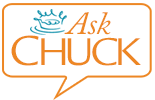Ask Chuck: Should I Keep a Health Savings Account?
To learn Biblical answers to your financial questions, you can #AskChuck @AskCrown your questions by clicking here. Questions used may be lightly edited for length or clarity.
Dear Chuck,
I just accepted a new position and have the opportunity to enroll in a Health Savings Account (HSA). I'm not sure I should, so I wanted to get your perspective. My wife works part-time and we have a preschooler. We're all in good health so no big expenses are expected.
Thanks,
Unsure About HSA

Dear Unsure,
Welcome to the world of navigating healthcare in America!
Winston Churchill said, "Healthy citizens are the greatest asset any country can have."
And, healthcare is supposed to "help" us care for our health.
In our home, we work at staying healthy by being vigilant and proactive in taking care of ourselves by eating right, exercising, and researching everything we are told by medical professionals.
When it comes to covering the costs for healthcare expenses, I like the HSA option. I'm still learning, but am grateful we have this option here in America. HSA's, or Health Savings Accounts, offer some great benefits for those who qualify. The fact that you are seeking counsel is commendable. Hopefully you are gathering the opinions of others as well.
Where there is no guidance, a people falls, but in an abundance of counselors there is safety. (Proverbs 11:14 ESV)
An HSA is a medical savings account for people covered under high-deductible health plans coupled with a tax-favored savings account. Contributions, up to a maximum amount, can be made to your account yearly with the money going toward qualified medical expenses, including dental, vision, and over-the-counter drugs. Money collected in the savings account can be used to pay your deductible. After the deductible is met, the insurance starts paying and any money left in the savings account earns interest and is yours to keep for future medical use.
Anyone who has a high-deductible health plan, is not enrolled in Medicare or the dependent on someone else's tax return, qualifies for an HSA. Those who want to limit the upfront cost of healthcare while saving for future expenses find these appealing and doable because of the low monthly premiums that accompany high deductible plans.
Here are some reasons why:
· Anyone can deposit money to your HSA. Contributions employers make to your account are not included in your gross income.
· There are tax advantages. Money contributed is tax deductible up to the legal limit (like an IRA), qualified withdrawals are tax free, interest or other earnings on the assets in the account are tax-deferred.
· Any money left in the HSA at the end of the year rolls over to the next year and grows tax-deferred.
· The money remains available for future medical expenses even if you change health insurance plans, change employers or retire. And, the funds left in the account grow tax-free.
· Most HSAs issue a debit or credit card so you can pay for expenses immediately or over the phone.
The 2017 contribution limits are $6,750 for a family and $3,400 for an individual. Catch-up contributions for those 55 or older are limited to $1,000.
In the event of death, the HSA would be owned by your spouse, assuming she is the beneficiary of your estate.
HSAs are a means of automatic savings. The money is deposited for a specific use and your family reaps the tax benefits. However, for those who expect high medical fees, plans with low deductibles and lower copays may be a better choice. Every family is different and must seek the knowledge of others, but ultimately the Lord, for the right decision.
"With God are wisdom and might; he has counsel and understanding .... With him are strength and sound wisdom." Job 12:13, 16a ESV
I hope this is helpful and makes you a little less unsure about electing to participate! Stewarding well what He provides requires research and faithfulness on our part. But, being faithful in the little things over a lifetime adds up to a life well lived.
If you are wanting to go deeper in your journey to becoming a faithful steward, enroll in Crown's online MoneyLife Personal Finance study. This 7-week course is completely self-paced and will help you gain a deeper understanding of what the Bible says about your money and practical ways to steward it well.



























